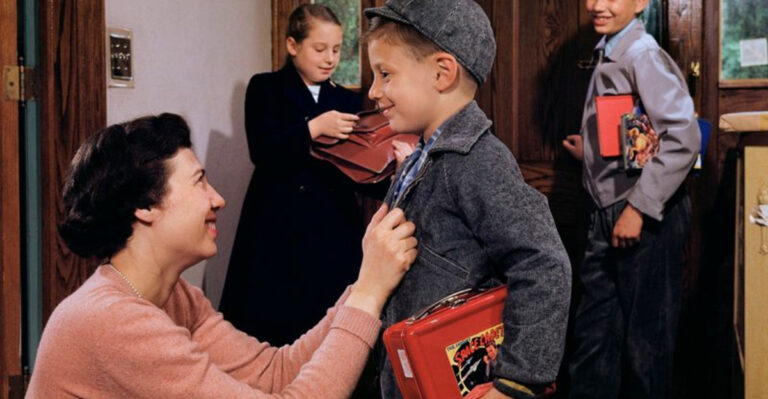19 Reasons Why Teaching Kids About Money Early Really Makes a Difference
Most of us were tossed into adulthood with a debit card, a mountain of student loans, and exactly zero lessons on what “APR” meant. We learned the hard way. The overdraft-fee, maxed-out-credit-card, please-don’t-let-this-check-bounce kind of way.
But it doesn’t have to be like that for the next generation. Teaching kids about money early isn’t about turning them into little Wall Street traders—it’s about giving them confidence, clarity, and choices. Financial know-how is the secret sauce that makes “adulting” less terrifying.
Let’s talk about why starting those conversations early can literally change your kid’s life—and maybe even save them from those late-night “how do I pay rent?” meltdowns.
1. Money Isn’t Taboo—It’s Just Tuesday Talk
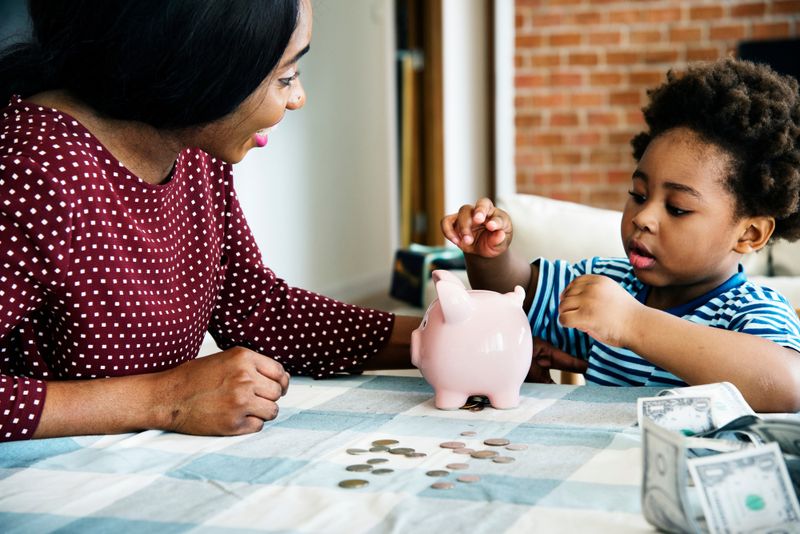
Kids hear everything. When you chat about money openly at home, you make it as normal as talking about what’s for dinner or who forgot to feed the dog. There’s zero shame in asking questions or saying, “I don’t know.”
When money isn’t treated like a big, secret “grownup problem,” kids pick up on the fact that it’s just another part of life. They’re less anxious because they know it’s okay to talk about it, and they’re more likely to ask when they don’t understand.
So when it comes time to make money decisions later—big or small—they’re not paralyzed by embarrassment or confusion. It’s just another topic, not a scary mystery.
2. Wants vs. Needs: The Sparkly Slime Lesson

Confession: my daughter once argued that glittery slime was a “need.” We had a full budget breakdown right there in the aisle. Watching her weigh new slime versus lunch money? Hilarious, but meaningful.
Teaching the difference between wants and needs—before the stakes are high—sets kids up to pause before they swipe a card or empty a wallet. It’s about priorities, not deprivation.
As adults, those early lessons mean fewer late-night regret purchases and more “I actually want this” moments. Turns out, learning to skip a trend or two is a superpower. Your kiddo becomes the friend who never falls for “retail therapy.”
3. Waiting Game: The Gift of Patience

The day my niece saved up for a new bike, you’d think she’d conquered Mount Everest. That countdown? Torture and triumph, all rolled into one. But she did it—and learned something powerful.
Kids who practice saving for what they want get a crash course in patience. Each small deposit is a little victory, and waiting becomes part of the excitement.
Down the road, those same skills help them avoid credit card traps and fast-money schemes. Patience isn’t just a virtue—it’s a money lifesaver. Who knew a piggy bank could teach more than a classroom?
4. ATM Isn’t Magic: Where Money Actually Comes From
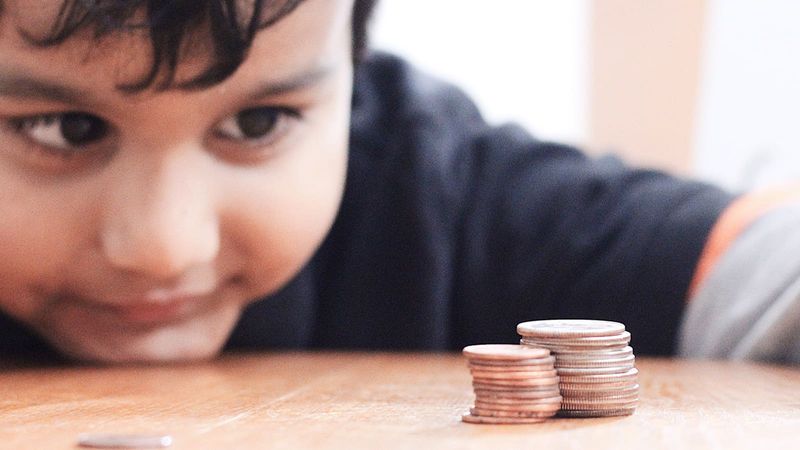
We all know one kid who thinks the ATM is a magical snack dispenser for cash. Reality check: money is earned, not conjured out of thin air.
When kids do chores, earn an allowance, or take on little jobs, the connection between work and money gets real—fast. Suddenly, spending is a choice, not an entitlement.
This lesson goes way beyond “clean your room.” It’s the first step toward understanding the world of work, value, and self-respect. The sooner they learn, the more gratitude (and fewer eye-rolls) you’ll get later.
5. The Entitlement Cure: Earning = Appreciating
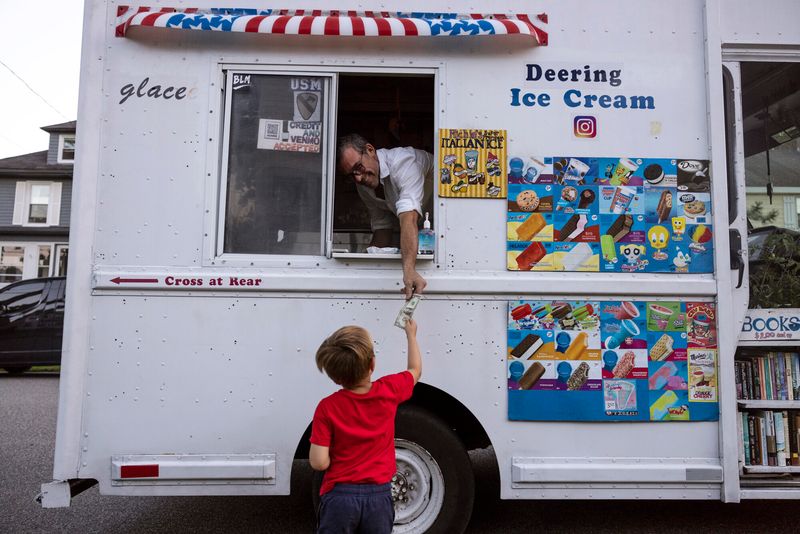
Let’s be honest—handing over cash for something you worked hard for feels different. Kids who earn their own money treat it (and what they buy) with so much more care.
I watched my son debate for ten minutes before spending his allowance at the ice cream truck—because that was his money. It was adorable and a little frustrating, but it meant he really valued his choice.
This translates to adulthood, too. People who appreciate what they have don’t feel entitled to more, more, more. Gratitude and good habits? That’s the magic.
6. Budgeting Basics: Low Stakes, Big Lessons
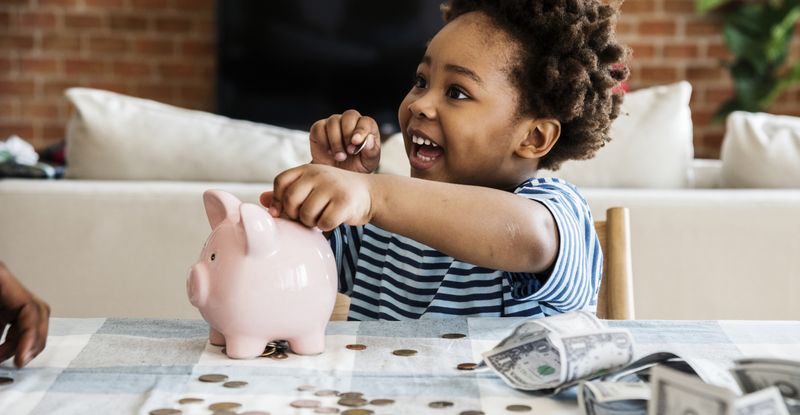
A $10 allowance is the world’s best budget training ground. Kids get to mess up, overspend, or forget to save—without the panic of missing rent.
My cousin’s daughter tracks every dollar in a sparkly notebook, proudly declaring her “snack fund” and “future dog fund.” She makes choices, recalculates, and learns the thrill (and pain) of watching numbers change.
By the time rent and bills show up, they’re basically pros. Budgeting isn’t scary when you’ve already practiced—with training wheels and all.
7. Scam-Proof Kids: No Easy Targets Here

Ever rolled your eyes at a “get rich quick” commercial? Kids who know the basics about money can spot a scam a mile away.
Financial literacy means they’re not easily fooled by promises of instant wealth or free iPhones. They’ve learned real money comes from real work, not sketchy shortcuts.
This confidence keeps their wallets (and digital lives) safer. Little lessons now can save them big headaches—and heartbreaks—later. Scammers hate an informed kid. Love that for them.
8. Number Confidence: More Than Just Math
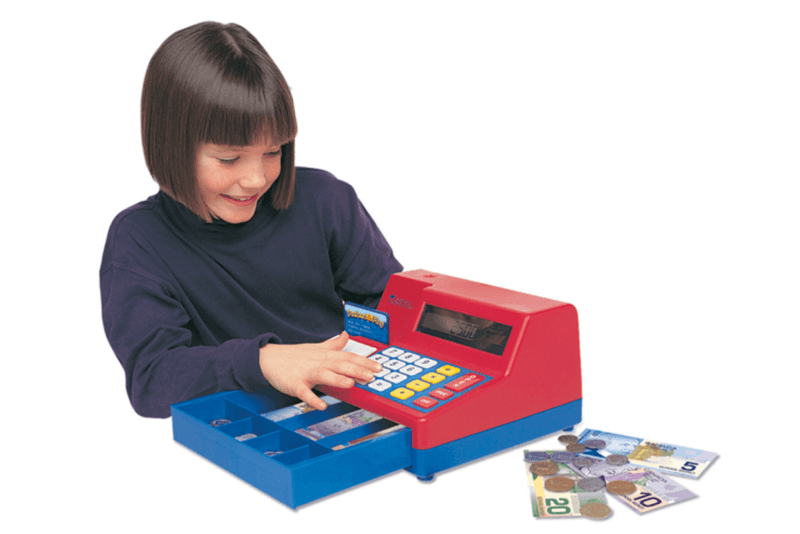
Some kids freeze at the sight of numbers. But add dollar signs and suddenly, things get interesting. Handling money is real-world math practice that actually sticks.
Counting change, budgeting for snacks, or figuring out if a sale is actually a bargain—these moments sharpen their quick-thinking skills. They start to trust their own judgment, not just memorize answers for a test.
That math anxiety? It fades. Instead, you get a kid who’s comfortable making choices, solving problems, and double-checking before they spend. That’s money math in action.
9. Question Askers: No More Suffering in Silence
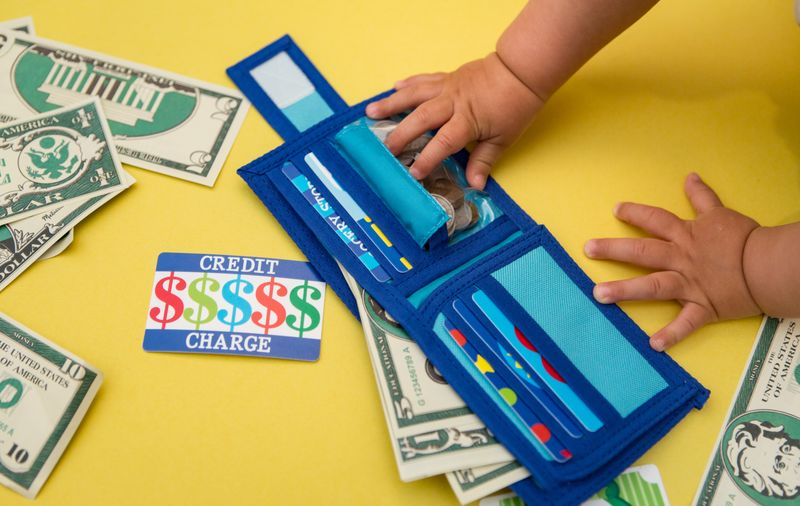
Kids who grow up talking about money aren’t afraid to ask questions. They’re the ones who say, “Wait, how much should I charge for babysitting?” or “Can I negotiate my phone bill?”
They’re not intimidated by financial jargon or awkward conversations. Instead, they see asking as smart—not embarrassing.
As adults, this turns into better salary negotiations and smarter decisions about contracts or big purchases. A question today saves a thousand headaches tomorrow. Let’s raise the hand-raisers!
10. Debt Isn’t Destiny: It’s a Decision
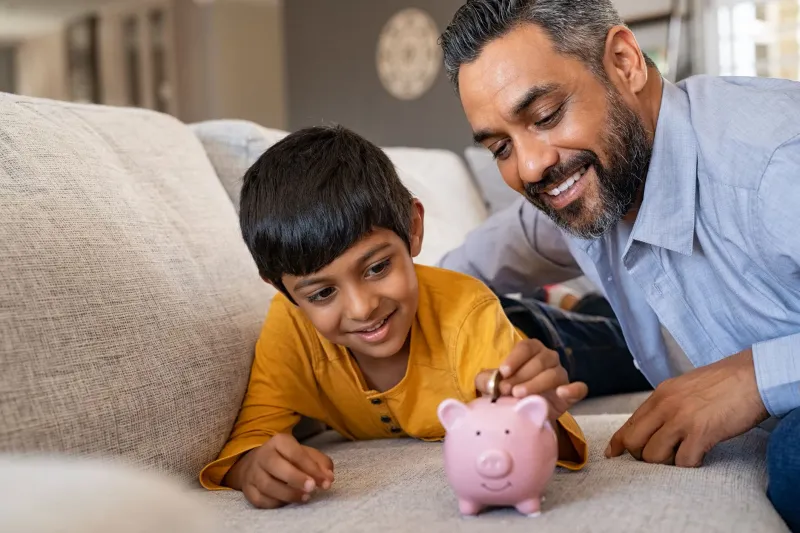
Nobody tells you not all debt is created equal. If you grew up thinking debt was just what adults had, you might not question it later.
But teach kids early, and suddenly, borrowing money looks different. It’s a conscious choice—not a rite of passage. They see loans and credit cards as tools, not traps.
That tiny shift? Major difference. Your future adult won’t just accept debt as “normal.” They’ll ask, “Is this worth it?” And sometimes, the answer will be a smart “no.”
11. Thoughtful Spenders: Pausing Before Purchasing

Impulse shopping is the adult version of eating a whole cake “for just one slice.” Kids who learn to pause before spending get the hang of thoughtful decision-making early.
They compare, they ponder, sometimes they even walk away. That careful pause becomes a habit that saves money (and buyer’s guilt) later on.
Honestly, it’s pretty satisfying to see a kid think, “Is this worth my money?” instead of “Can I have it now?” The pause is powerful—and it sticks.
12. Giving Feels Good: Heart Meets Wallet
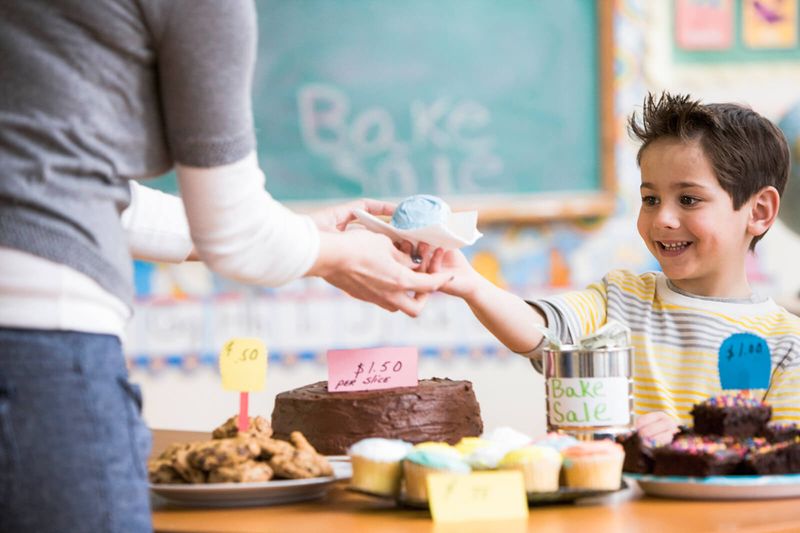
The first time my son brought coins to school for a class fundraiser, he was beaming. Giving feels different when it’s your own money—it’s empowering and a little bit magical.
Kids learn that even small gifts can make a big impact. They pick causes they care about, and they feel proud to help.
Generosity becomes an active choice, not just a parental suggestion. And that, honestly, is one of the sweetest side effects of early money lessons.
13. Hearing “No” Without Melting Down

Few things are tougher than saying “no” to a puppy-eyed kid at the checkout. But learning to handle “no”—and knowing it’s not the end of the world—is huge.
Kids who experience limits grow up with resilience and self-control. They don’t crumble when life doesn’t hand them everything. They adapt, and sometimes they even move on faster than we expect.
That ability to hear “no” (and say it themselves) makes adulthood less shocking. Life isn’t always a “yes,” and that’s okay.
14. Saving is a Celebration

There’s something oddly thrilling about watching a jar of coins fill up. Kids get a visual, hands-on celebration of their effort every time they add to their stash.
That sense of progress? It’s addictive in the best way. Saving isn’t a chore—it becomes a game, a challenge, and, honestly, a source of pride.
By the time they’re old enough for bank accounts, the whole idea of setting money aside feels natural. Win-win for everyone’s future.
15. Life Decisions Aren’t Blindfolded
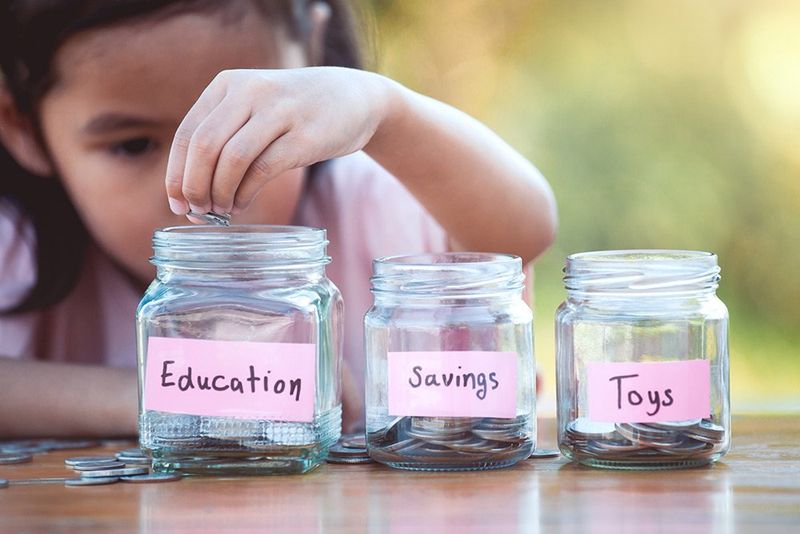
College, first cars, moving out—none of these are tiny choices. Kids who’ve had years of real money conversations don’t panic when the big decisions come knocking.
They weigh options, ask smart questions, and plan instead of winging it. There’s a confidence in knowing what they can afford, what they want, and what they’re willing to sacrifice.
No one expects them to have all the answers, but wow—starting early gives them a head start most of us only wish we’d had.
16. Money Talk = Less Money Stress

Money stress hits hard if you’ve never seen a budget or heard about bills. But when kids grow up hearing about money—without shame—they’re less panicked later.
They know what expenses are, they know how to plan, and they know money isn’t scary or mysterious. That peace of mind is priceless.
Less anxiety now means fewer sleepless nights as adults. And honestly, isn’t that what we all want for our kids?
17. Opportunity Cost: The Target Lesson

Buy the toy now or save for the book next week? That’s opportunity cost in action, even if nobody says the words.
Kids naturally learn to weigh their choices, trade-offs, and what really matters to them. It’s decision-making on training wheels—no complicated terms required.
That skill? It grows into “Should I rent or buy?” and “Is this job worth the commute?” Life’s full of choices, and early money talks make those choices less scary.
18. Little Entrepreneurs: Power in Their Pocket
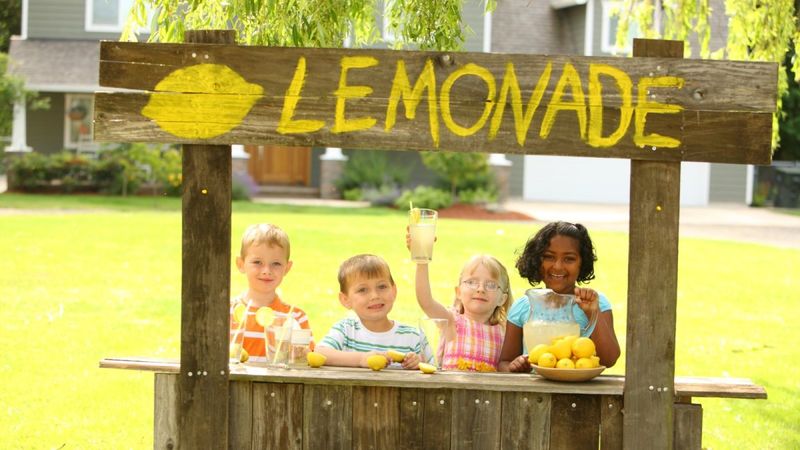
Lemonade stands, craft sales, dog-walking gigs—these aren’t just fun for the summer. They teach kids the thrill (and work) of making their own money.
They see what goes into earning, planning, and sometimes even hustling a little. Suddenly, their ideas have value—and they realize they can create their own opportunities.
It’s not about becoming a future CEO overnight. It’s about feeling powerful, creative, and in control. Those are lessons worth every sticky cup of lemonade.
19. Breaking the Cycle: Financial Freedom for Generations

Teaching kids about money isn’t just about them—it’s about everyone who comes after. When one generation learns, the whole family tree grows a little stronger.
Breaking old patterns, sharing new habits, and talking openly changes everything. Your kids will teach their kids, who will teach theirs.
Suddenly, financial literacy becomes the family legacy—not debt or confusion. That’s how real change happens, one conversation at a time.



